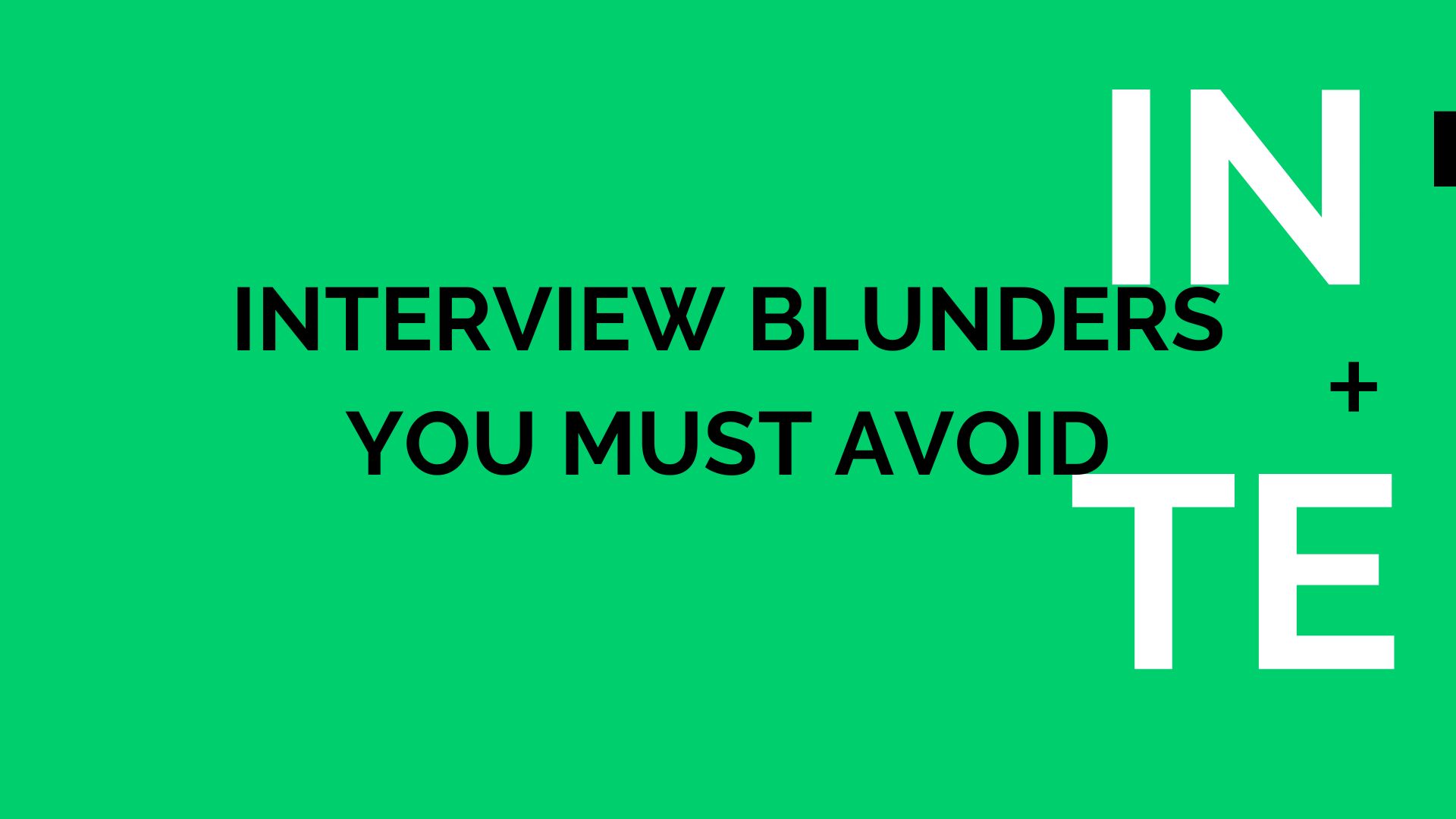10 Interview Blunders You Must Avoid
In the competitive landscape of job hunting, an interview is your opportunity to shine. However, it’s easy to stumble if you’re not prepared. In this article, we’ll explore ten common interview mistakes that you should steer clear of to ensure you make the best impression possible.
1. Arriving Unprepared: Your first mistake can happen before you even sit down for the interview. Failing to research the company, the role, and the interviewer can signal disinterest or lack of initiative.
2. Poor Body Language: Non-verbal cues speak volumes. Avoid slouching, fidgeting, or avoiding eye contact. Instead, maintain good posture, offer a firm handshake, and engage with the interviewer through attentive body language.
3. Rambling Answers: Keep your responses concise and on-topic. Rambling answers can lose the interviewer’s interest and make you appear unfocused or unprepared.
4. Bad-mouthing Previous Employers: Speaking negatively about past employers or colleagues reflects poorly on your professionalism and can raise concerns about your ability to work well with others.
5. Lack of Enthusiasm: Employers want to see passion and enthusiasm for the role. Avoid appearing disinterested or indifferent by demonstrating your excitement for the opportunity.
6. Forgetting to Ask Questions: An interview is a two-way street. Failing to ask thoughtful questions can signal a lack of interest or engagement in the position.
7. Not Tailoring Your Responses: Generic answers that aren’t tailored to the specific role or company can come across as insincere. Take the time to customize your responses to highlight your fit for the position.
8. Being Unaware of Your Weaknesses: When asked about your weaknesses, avoid clichés like “I’m a perfectionist.” Instead, demonstrate self-awareness and discuss areas where you’re actively working to improve.
9. Talking Money Too Soon: Bringing up salary and benefits too early in the interview process can give the impression that you’re more focused on compensation than the job itself.
10. Failing to Follow Up: A thank-you email after the interview is a simple gesture that can leave a lasting impression. Failing to follow up can signal disinterest or lack of appreciation for the opportunity.
Conclusion: Interviews can be nerve-wracking, but avoiding these common blunders can help you make a positive impression and increase your chances of landing the job. By preparing thoroughly, demonstrating professionalism, and showcasing your enthusiasm, you’ll be well on your way to interview success.


 0
0